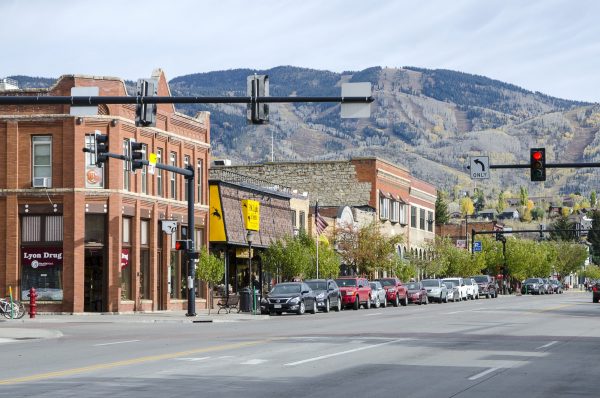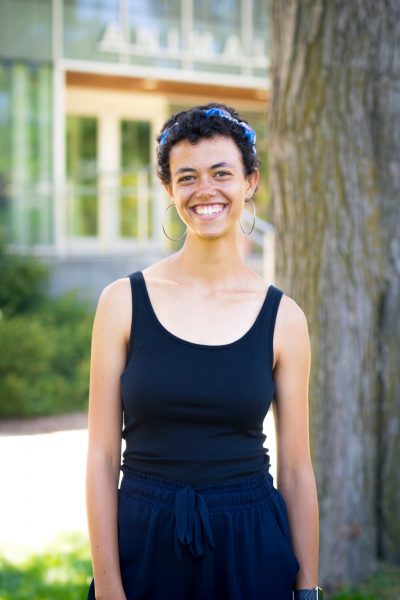
What career paths can a person take with a degree in economics? That’s a question the Department of Economics is helping students answer through the innovative undergraduate research internship program.

Now in its second year, the program matches motivated students who have learned baseline data and econometrics skills with faculty mentors who help them apply those skills through real-world research experience.
In summer 2022, junior Joanna Mosley paired with Professor Stephan Weiler, co-director of the Regional Economic Development Institute (REDI@CSU), to continue work on an economic dashboard for rural Colorado counties.
Regional economists specialize in analyzing economic indicators across self-employment, employers, industry, job creation, growth in establishments, labor productivity, personal income, housing affordability, and commuting flows. “Small business is largely what keeps rural areas going, so we’re interested in better understanding entrepreneurship,” says Weiler.
Mosley’s project was to provide local leaders with a better understanding “of what their economy looks like and how they can make it stronger,” Mosley says. “For example, in Routt County [home to Steamboat Springs], I looked at the breakdown of jobs and how they have to bring in a lot of service workers because it is a richer, more touristy area.”
In the day-to-day, Mosley’s internship required data collection, data analysis, developing graphs, writing explanations for economic indicators, and regular email correspondence with Professor Weiler. Mosley was also given the opportunity to pursue an independent research project, which focused on the changing racial demographics of the Colorado Springs metro area.
For economists, demographics are an important data set in the larger economy. Working with the numbers sparked a curiosity in Mosley to ask more questions.
“I grew up in El Paso County, and in my experience, it was not racially diverse, but then I was actually looking at the data which reports increasing populations of color. It made me wonder what I had missed in my own experience,” she says.
[This internship] gave me a clearer vision for the future and some ideas of what I'm looking for in my career. It excites me and makes me want to keep learning because I feel like what I did was important."
“I think it’s important to look at diversification in the larger economy because race impacts the jobs that people are in. Often there are people of a certain race who are in certain jobs, and I think it would be interesting to explore what jobs certain people get, why, and what impact that has on our community,” she says.
Where economics classes provided an essential vocabulary and training in economic thinking, the internship’s hands-on research sparked excitement for future career paths – which Mosley thinks may include economic consulting, nonprofit work, and travel.
“I think I got some good, hands-on, real-life experience. In classes, the problems we do just kind of work out because they're meant to work out. We're meant to come to a solution. But this process of collecting and analyzing data was messy, as life is,” Mosley says. “It gave me a clearer vision for the future and some ideas of what I'm looking for in my career. It excites me and makes me want to keep learning because I feel like what I did was important. Whatever I end up doing, I want to be helping people.”
